Do mathematically less able students unnecessarily complicate things?
Posted by: Gary Ernest Davis on: December 30, 2010
A few anecdotal experiences, separated widely in time and space, have led me to speculate that less able mathematics students might be unnecessarily complicating procedures and examples, to the point where the complication impedes their learning.
Guess my number
A colleague at the University of Melbourne in Australia told me, many years ago, about her experiences with students trying to guess a whole number she had in mind. The game, as I recall, was for students to have 10 guesses to identify a whole number between 1 and 1000 that she knew but the students didn’t.
Let’s say the number, unknown to the students, was 473.
One way to go about this might be to ask: ” Is the number less than, or greater than or equal to, 500?”
The answer would be: “Less than 500.”
Then a reflective student might ask:” Is the number less than, or greater than or equal to 250?”
The answer might be: “Greater than 250.”
So, now, this reflective student, with a good strategy to hand, would ask: “Is the number less than, or greater than or equal to, 375?”
The answer: “Greater than 375.”
Now the student halves the difference between 375 and 500 as best they can, and asks: “Is the number less than, or greater than or equal to, 437?”
The answer: ” Greater than 437.”
The student has now used up only 4 questions, and is honing in on the number.
“Is the number less than, or greater than or equal to, 468?”
“Greater than.”
“Is the number less than, or greater than or equal to, 484?”
“”Less than.”
“Is the number less than, or greater than or equal to, 476?”
“Less than.”
“Is the number less than, or greater than or equal to, 472?”
“Greater than.”
“Is the number less than, or greater than or equal to, 474?”
“Less than”
Is the number 473?
“Yes!”
This took the student just 10 questions!
Of course the halving strategy works because .
One does not expect that a student will have worked this out before hand, but what is it that students actually do?
My colleague observed that the students who were more mathematically able, as estimated by prior achievement in class, adopted strategies similar to this. They chose numbers easy to remember and seemed to try to maximize the information that each answer gave them.
The less able students, in contrast, seemed to choose numbers more or less at random and chose numbers harder to recall. For example, they might ask: “Is the number 279?” “Is it 123?” “Is it 457?” and then forget which numbers they had already asked about.
The less able students seemed to minimize the information they obtained at each guess, and chose numbers that were harder for them to recall.
Complicating programming
During a mathematical inquiry class with undergraduates, we were investigating random walks with memory on a rectangular grid.
We wanted to obtain empirical estimates of the average distance such random walks got from their starting point. To that end students worked in groups using different programming environments: MATLAB, Python, Mathematica, to get some empirical data.
I worked with two students in a group.
As we developed our algorithm the details were becoming a little complicated. I put it to the students that we needed to radically simplify our approach. One of the students objected to this strenuously, telling me that a good program was one that was complicated. When I quizzed him about this he stated that the instructor would be impressed by a complicated program, but not by a simple one. To no avail I pointed out that I WAS the instructor and I valued simplicity and clarity over complication.
Was this student – whose GPA was significantly below 3.0 – unnecessarily complicating his approach to problem solving by an attitude of “complicated is good”?
Choosing surfaces in multi-variable calculus
This past semester I taught multi-variable calculus and when discussing surfaces, contour plots, and gradient fields, got the students, in pairs, to choose their own surfaces to work with.
What struck me was how the distinctly less able students in the class, in terms of GPA and prior work, chose very complicated surfaces to work with, while the most able students chose much simpler examples.
For example, two less able students working together studied the surface with the following pictorial representation:
On the other hand, a highly capable student chose the surface with plot:
Is there a hypothesis here?
So long as we can come up with a measure or indicator of complication of examples – perhaps related to the information or lack of it that the example provides to a student – we could hypothesize that students with pre-existing lower mathematics achievement, estimated by tests and assignments, choose significantly more complicated examples than do mathematically more able students. This should be empirically testable.
I am very interested to hear about other clear examples of less able students choosing complicated examples to think about and more able students choosing simpler examples.
Cause and effect may be difficult to separate here, even if more able students do generally pick simple examples when learning a topic. Perhaps they are more able just because they DO choose simplicity as they are learning.
And just to cap it off …
Really simple math made complicated:
Postscript
I have been thinking about Peter Flom’s comment that ” … students who are mathematically able beautifully simplify things.”
I believe that to be true, and I also believe the work of Krutetsky showed that to be true.
However, the students in my mutli-variable calculus class did not simply fail to make things simple: they actually made them much more complicated. They deliberately chose examples of curves and surfaces with complicated and whistles, and then found those curves and surfaces hard to analyze analytically.
Their marked tendency to choose complicated examples impaired their ability to learn and analyze basic concepts related to these examples, such as the velocity, acceleration and curvature of a curve, and the gradient and directional derivatives on a surface.
11 Responses to "Do mathematically less able students unnecessarily complicate things?"
High-performing students are able to visualize and compare quantities on a number line. Weaker students lack this visual understanding, so they are unable to find effective strategies for the number guessing game.
I find it plausible that weak students would choose more complicated examples in order to avoid criticism and embarrassment. They perform unnecessary calculations for the same reason. They aren’t sure what the rules are, so they try to “cover all the bases”. Simplicity requires courage and self-confidence.
That’s a very interesting observation David, and it accords with my own: lack of confidence does seem to promote over complication in an attempt to disguise or cover up insecurity.
I have to agree with the statement: “Simplicity requires courage and self-confidence.” I know from personal recent travel experience where I was unsure of what to do in a town. I wasted weeks and weeks researching places to go, eat and stay because I wanted to “cover all bases”. In the end, we threw away the plans and with courage and self-confidence went where the winds carried us. We somehow ended up in all the places we wanted to check out. It will always be one of my all-time favorite vacations.
I know it’s silly to compare traveling to math and education. But to me they are both about exploring the unknown and learning new things. It’s the courageous and self-confident who are able to visualize the process needed to get the desired result because they are able to see the goal and the path to it. As you said, those who don’t have this trait are more thoughtful of criticism and embarrassment for getting the wrong answer and they do everything they can to avoid it.
Regarding “bad” teaching. It is commonplace that those of us who are skilled in one area find it hard to understand how people can be unskilled in that area. In addition, it is hard to remember difficulties we may have had (or not had) learning new concepts.
Too often, we expect our students to just “get it”.
I wonder if anyone has studied the relationship between the time it took for a mathematical concept to be developed, historically, and the difficulty that children have in learning that concept?
There does seem to be SOME relationship. e.g Many people have trouble with negative numbers – and, certainly, it took a very long time for negative numbers to be fully understood.
The types of questions must be formulated more exact.
A question like the following:
“Is the number less than, or greater than or equal to, 468?â€
has three possible answers.
So if you prove the strategy works because 2^{10}=1024>1000, you should only allow yes/no – Questions.
E.g. like
“Is the number less than 468?â€
Thanks Frank. I was aware of that. which is why I wrote: an answer could be.
A teacher is not likely to answer “greater than or equal to” if in fact the number is greater.
One of my favorite classroom strategies is to solve a problem and then solve either the same or a similar problem using an alternate method. The idea is to show both that there are often multiple paths to the same solution, and that refining a problem solving strategy is a good thing.
Over the last few years, I’ve noticed that nearly always someone, after the second solution method, will say something like “Why didn’t you show us the easy way to do it first?” And it seems that there’s a correlation between that question and current performance in the class. Without getting in to all the different stock answers I have for this question, has anyone else noticed this phenomenon?
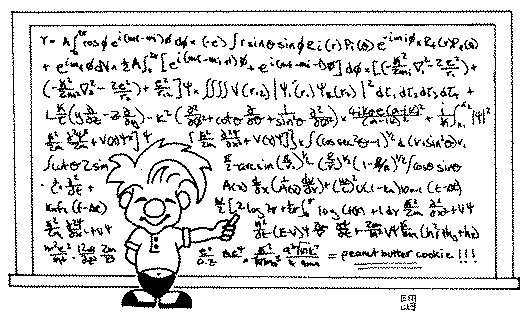
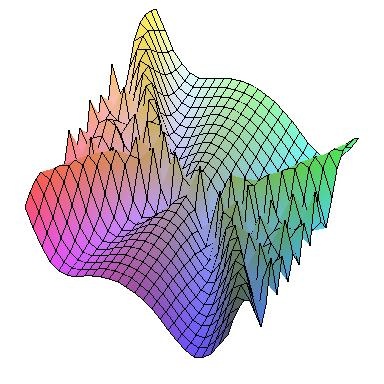
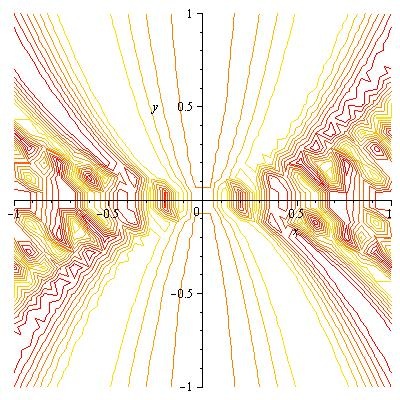
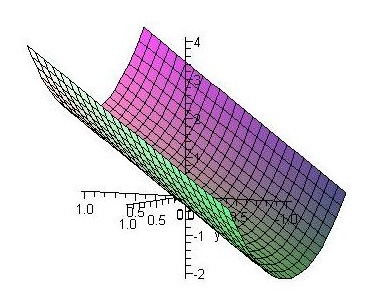
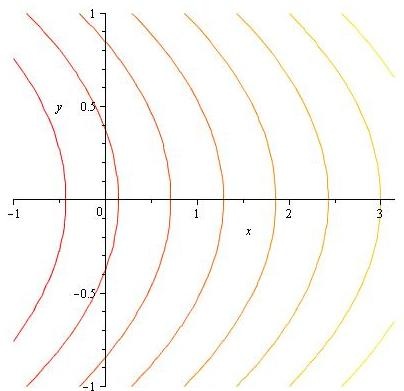

December 30, 2010 at 4:17 pm
I think you have a good point here, but I think the way it’s phrased might make it somewhat less useful to teachers. It’s not so much that bad mathematics students unnecessarily complicate things but that students who are mathematically able beautifully simplify things.
When you give an example like the “guess a number” one, which (I imagine) nearly all readers of this blog would find quite easy (that is, the proper strategy comes to mind without much thought), it makes it seem like bad students are doing something wrong.
But even there, they aren’t starting with something simple and making it complex, they are starting with something complex and leaving it complex.
Abraham Lincoln said “If I had eight hours to cut down a tree, I would spend six of them sharpening my axe”. Bad mathematics students just start chopping; better mathematics students sharpen their axes. Brilliant mathematicians are really good at sharpening their axes
December 30, 2010 at 4:27 pm
Thanks for these perceptive comments, Peter. Your Abe Lincoln quote is spot on: Krutetsky observed a long time ago that more capable mathematics students spend time “preparing”, and developing a strategy.
December 30, 2010 at 4:49 pm
Peter makes an excellent point, and one that opens the door to another inquiry. Where do “less able” math students come from? Certainly different people have different levels of natural aptitude, but in my experience teaching ACT/SAT/GRE/GMAT math to students at a wide range of abilities (and self-perceived abilities), overcomplication in a student’s mind often comes from having been trained to simply follow the assigned steps without any real understanding of the concepts–in other words, bad teaching. A student who doesn’t understand the basic concepts can’t see the simplicity of the simple approach or example; it’s all equally complicated and confusing to her.
December 30, 2010 at 4:59 pm
Tiffany, thanks for these comments. It might not be “bad” teaching so much as teaching that is not mindful of the difficulties students might have in over complicating things (Of course we can agree to call that “bad” teaching, though I must, at times, plead guilty).